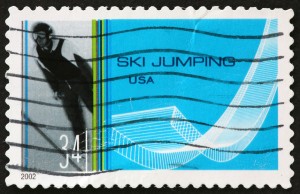 We are totally excited for the Winter Olympics. From the pageantry of the opening ceremony to the awe of the ski jumps, it’s gonna be really fun. (Also, women will compete in ski jumping this year, which is awesome.) Still, we can’t help but notice the context of the competition. There’s a lot going on outside the Olympic Village, and sometimes it’s not pretty.
We are totally excited for the Winter Olympics. From the pageantry of the opening ceremony to the awe of the ski jumps, it’s gonna be really fun. (Also, women will compete in ski jumping this year, which is awesome.) Still, we can’t help but notice the context of the competition. There’s a lot going on outside the Olympic Village, and sometimes it’s not pretty.
Fans of the 2014 Winter Olympics in Sochi might feel like they are seeing more politics than sports on TV this year. For starters, the politics of Sochi 2014 brims with boycotts. LGBT activists around the world have planned to boycott the games in general, (along with Russian vodkas). Some Russian civil rights activists have argued for sparing the athletes but supported boycotting Putin’s movements at the games. Other Russians, like the dissidents from Georgia, weren’t so precise.
The various outcries against Sochi make you stop and think. What are the Olympics really about? Is it solely an exhibition of the world’s top athletic talent? A giant international muscle-flexing between nations? A personal inspiration to work hard at whatever sports we practice?
It could be all of those things, and more.
Booster club participants can take notes from the Olympics in this regard. Yes, young people can immerse themselves in the pure joy of competition. But they have to recognize their impact off of the field as well. Once you compete on behalf of your school, city, or state, your conduct reflects on those that you represent. The Olympics almost always stir controversy, and they remind us of the importance of context, pageantry, and sportsmanship. External appearances of decorum and respect are important, and they flow simultaneously with the practice of sports themselves.
Internal realities on teams are important as well. The struggles of LGBT athletes have been discussed more openly in the past four years. Still, American high school athletes struggle with homophobia. Recognizing the censorship and discrimination that LGBT athletes are likely to face in Russia, it’s a good time to for participants, fans and coaches to question their own programs. Are your teams inclusive? Are students gracious in their victories and in their defeats?



